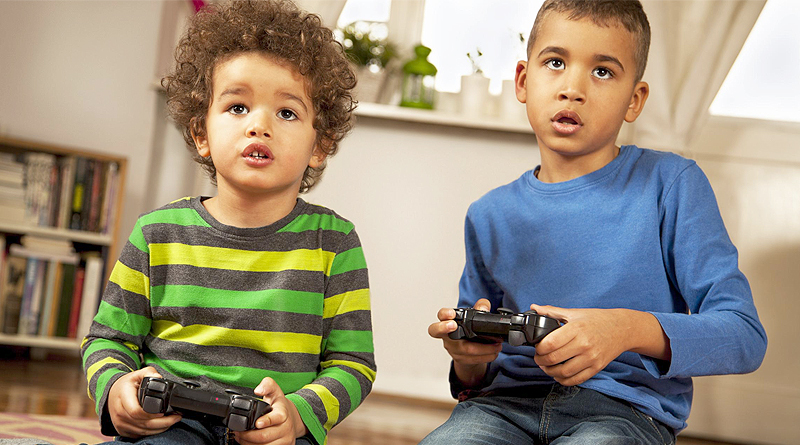Pitfalls Of Parenting – Electronic Devices and Children’s Development
During the summer holidays – throughout the year – a great number of children are enthralled with some type of electronic device, and so spend a lot of time staring at a screen.
This is, understandably, a perennial battle between parents and offspring. From as young as infancy our children are exposed to these ubiquitous devices with mesmerising games, while the older ones are constantly texting and sharing photos and videos with their peers.
However, as challenging as it is, as responsible parents you need to put your foot down to limit screen time to protect your children’s mental and physical development.
Obesity: Sitting in front of a television or computer is a “sedentary behaviour,” so doesn’t burn much energy. Children often use a device for four to six hours a day, which translates to a lot of sitting. This means that fewer children are getting the necessary physical activity to keep them active and healthy.
Sleep loss: Screen use also affects sleep. A US study in the in 2014 showed a connection between “excessive screen time and shorter sleep” patterns, “predictive of behavioural and social problems, poorer academic performance, and health conditions such as obesity.”
Hand pain: Texting and gaming on phones wreaks havoc on hands. A 2015 study in the Muscle & Nerve journal found that college students with heavy phone usage showed more impaired hand function, thumb pain and repetitive-strain injuries than students who used phones less.
Headaches: A recent study published in the Journal of Neurology and Psychology showed the incidence of headaches was higher, longer and more frequent among people using phones for long periods than people with lower phone usage.
The mental effects of phone dependency are an even more serious cause for concern.
Obsessive behaviour
Apparently, the more adolescents use social media, the more stressed they are. This is bourne out by a recent CNN recent study of how young teens use social media. Child clinical psychologist, Marion Underwood, who co-authored the study says, “This is an age group that has a lot of anxiety about how they fit in” and rank among their peers.
“There is fear in putting yourself out there on social media…they “hope for lots of likes and comments and affirmations, [but] there is always the chance that someone could say something mean.”
Underwood surmises that adolescents are “addicted to the peer connection and affirmation they’re able to get via social media”, keeping abreast with what others are doing, how many people like what they post or follow or un-follow them daily.
Negative influences
Furthermore, there seems to be a link between increased exposure to television or personal electronic devices and children’s views on junk food, alcohol and tobacco use and aggressive behaviour. Foods in commercials targetted at children usually have a high sugar fat or salt content, and video games and movies, sadly, often glorify violence.
Attention disorders
A big concern about smart phones is that they can cause attention problems. Among younger age groups parents’ own phone use can contribute to this. A small study in 2105 showed that when parents stop focusing on a baby in favour of their phone, the baby may mimic that behaviour by playing with toys (or screens) for only a short period of time.
Another study showed that people of all ages who have heavy internet and phone use are more prone to brain fog – impeded concentration, forgetfulness, poor spatial awareness and errors – regardless of whether they are using a phone at the time. These “cognitive failures” induced by include missed appointments, not noticing road signs, daydreaming during conversations and forgetting why they moved from one area of the house to another.
For children under two, the American Academy of Pediatrics (AAP) recommends no screen time at all, and for older children, only an hour or two a day. However, the organisation is revising those guidelines and is expected to issue more conservative ones by October 2016.

How to reduce your child’s screen time
David Hill, chairman of the AAP Council on Communications and Media and member of the Children, Adolescents and Media Leadership Working Group offers some tips to help parents reduce the time their children spend on screens.
Unplug by example
Parents, demonstrate mindfulness by putting down phones during meals or whenever your children need attention.
Praise “offline” behaviour
Validate your children and express interest when you see them riding a bicycle, colouring or engaged in any other offline activity. These interactions will heighten their awareness of the joys of the “real” world, and in so doing, they will also be pleased that they gain your attention.
Set limits and keep them
When determining boundaries, ask your children what they think is fair – even if you don’t actually use their suggestions, since this helps them feel important and gives them an opportunity for input. If the rules are broken, enforce the stipulated punishment (performing additional chores, removal of the device etc.) and STICK to it.
Cut TV time
Don’t keep televisions in children’s bedrooms, and don’t allow viewing at during meal time or homework. Don’t keep the TV on for background noise. If you plan to watch a show, decide on this in advance, and turn off the TV when it’s finished.
Monitor closely
The CNN study revealed that parents who made an effort to closely watch their child’s social media accounts had a tremendous effect on their child’s psychological well-being. While most parents “underestimated the amount of fighting taking place over social media”, one expert believed that parental monitoring “effectively erased” the negative effects of children’s online conflicts.




